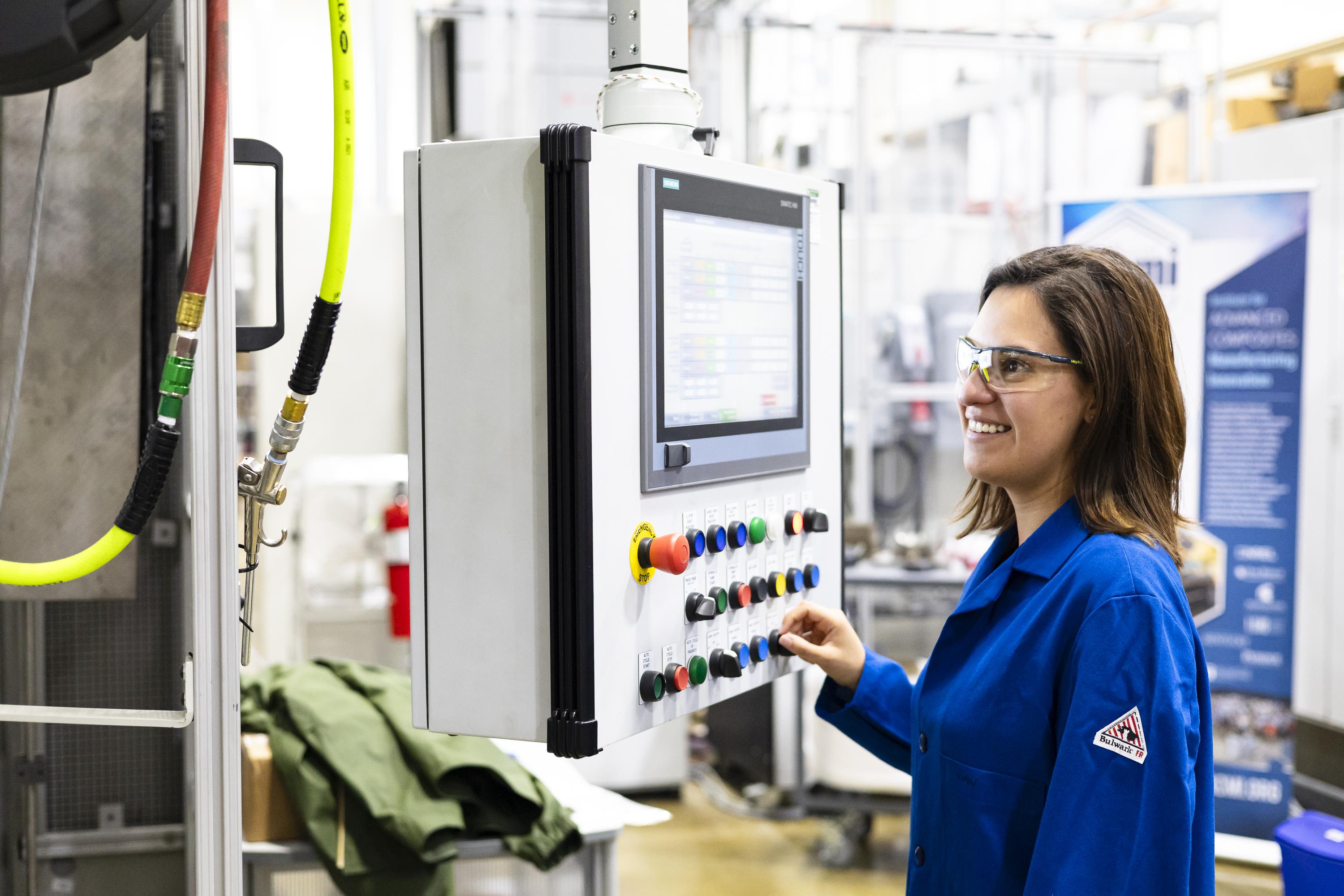
The Quality Control of Additive Manufacturing, or QCAM, Consortium housed at New Mexico State University enabling In- and Ex-Situ QCAM is making waves in STEM education and workforce development through a $3 million federal grant from the U.S. Department of Energy’s Minority Serving Institution Partnership Program.
The program aims to create a sustainable pathway for students from Minority-serving Institutions to careers at the U.S. Department of Energy’s National Labs and Plants.
“QCAM is bridging the gap between education and industry,” said Borys Drach, QCAM director and NMSU mechanical and aerospace engineering professor. “We’re equipping students with the tools and experience needed to thrive in additive manufacturing and quality control, fields critical to the future of national security.”
In three years, QCAM has engaged more than 1,700 students across secondary schools, undergraduate programs and graduate studies. With its partner institutions Prairie View A&M University and Navajo Technical University, the program provides a variety of educational, research and outreach opportunities.
“The program’s impact is evident in its numbers,” Drach said. “Twelve graduate students have been supported and co-mentored by faculty and staff scientists from partnering laboratories. Seventeen undergraduate research students have participated in hands-on research related to additive manufacturing and quality control.”
Additionally, 24 students from NMSU, NTU and PVAMU have completed internships at Los Alamos National Laboratory, Oak Ridge National Laboratory and Kansas City National Security Campus, giving them exposure to world-class research and top engineers.
More than 90 students have taken on client-assigned capstone and senior design projects under the guidance of experts from the three national labs. More than 350 students have received education on key topics such as additive manufacturing technologies and materials, design for additive manufacturing, and finite element analysis for additive manufacturing through curricula developed by QCAM faculty.
Furthermore, 1,200 local secondary school students have participated in interactive lab tours, workshops and hands-on demonstrations, broadening their understanding of the field.
“The numbers speak for themselves,” said Satyajayant “Jay” Misra, NMSU associate dean of engineering research. “Our partnership is creating a ripple effect, inspiring a new generation of scientists and engineers to explore careers in additive manufacturing.”
A standout feature of QCAM is its annual summer workshop, hosted by NTU. The two-week immersive event offers students hands-on experience with state-of-the-art additive manufacturing equipment, guided by industry experts. Representatives from LANL, ORNL and KCNSC also participate, introducing their laboratories and recruiting top talent.
“The summer workshop is a unique opportunity,” said Kate Lewis, QCAM program coordinator. “Students gain not only technical skills but also connections that could launch their professional careers in national labs.”
Additive manufacturing, commonly known as 3D printing, is revolutionizing industries from aerospace to healthcare. Through QCAM, students are gaining the skills to design and analyze 3D-printed components and ensure their quality through rigorous testing and evaluation.
QCAM recently released a highlight video featuring current and past students. Their testimonials can be view online.


